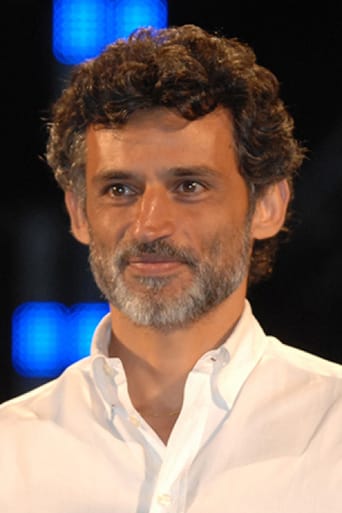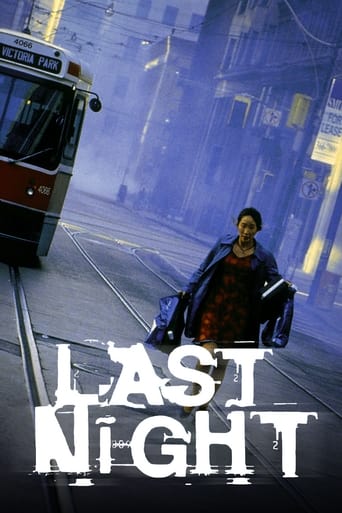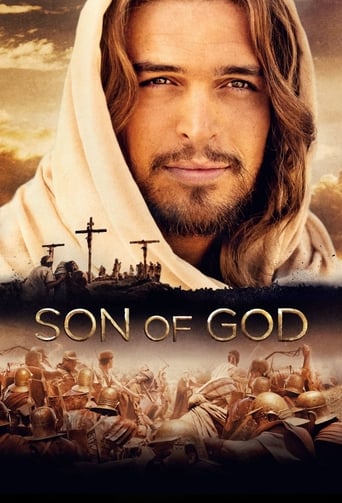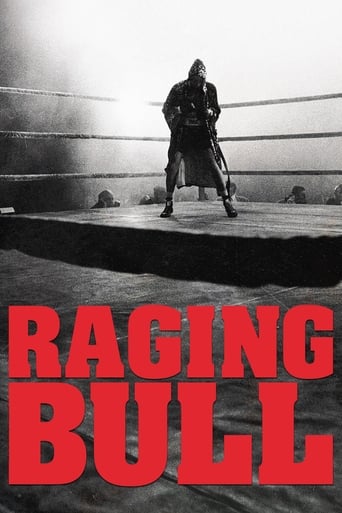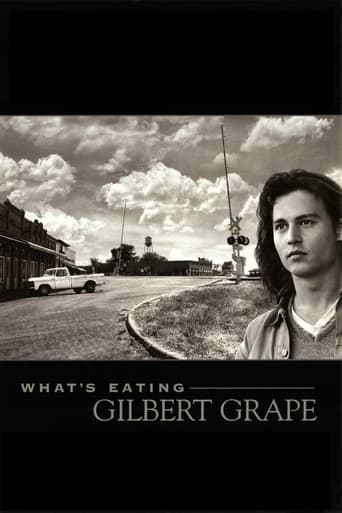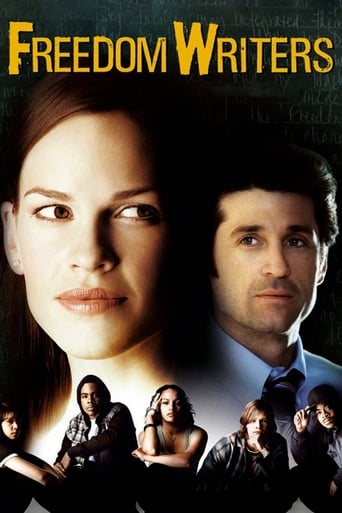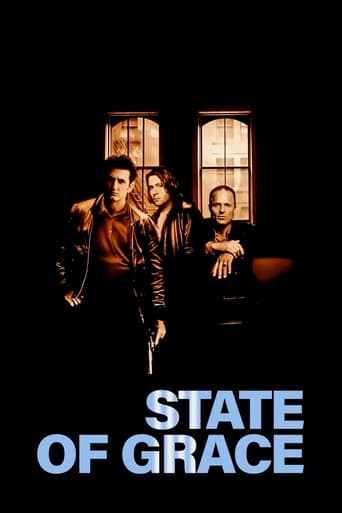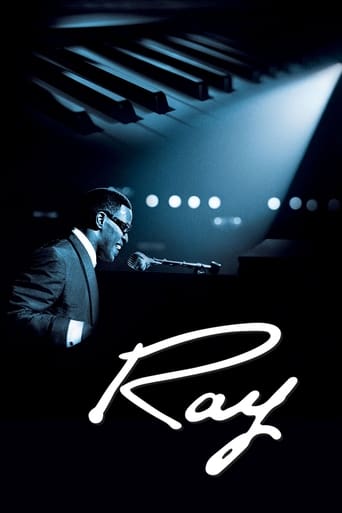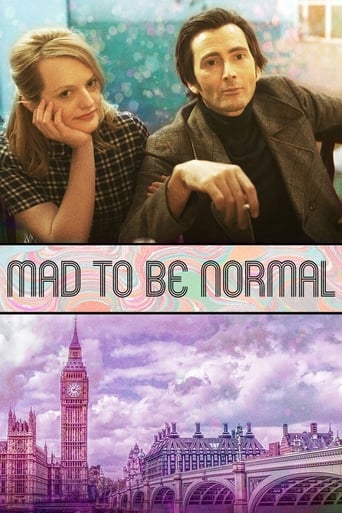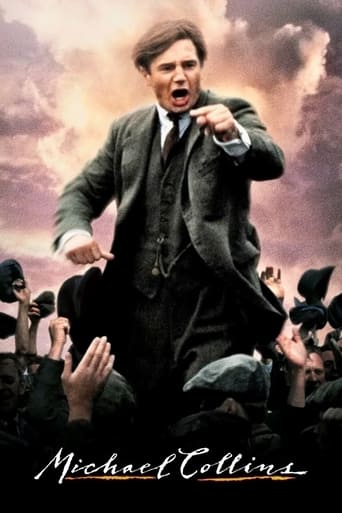
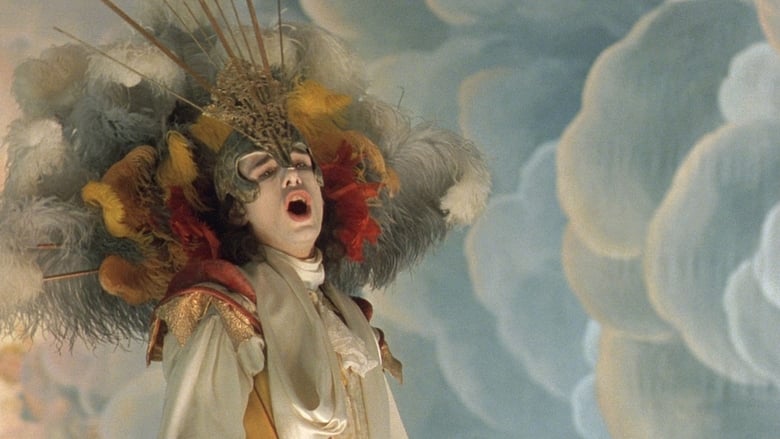
Farinelli (1994)
The life and career of Italian opera singer Farinelli, considered one of the greatest castrato singers of all time.
Watch Trailer
Cast


Similar titles
Reviews
for music, atmosphere and costumes. for few scenes. as introduction to the spirit of a period. and for the remind of the traits of Baroque. one of films who remains a must see for the aesthetic virtues. maybe, in same measure, for the good intentions. because, except the case of "castratti", it is only a story of a music star. with same sins and virtues and half truths. with the same impressive clash between art and near reality. showing the same vulnerability of a selfish hero of scene. so, a beautiful film. but not more.
Farinelli is the artistic name of Carlo Broschi, a young singer in Handel's time. He was castrated in his childhood in order to preserve his voice. During his life he comes to be a very famous opera singer, managed by his mediocre brother Riccardo.Although this is the story of a real person, it relies very little on facts. Just a few notes: the ambiguous relationship between the Broschi brothers, the stormy one with rival composer Handel, and Farinelli's own amorous escapades and over-the-top "rockstar" attitude are totally spurious. But I don't think this makes the film bad, because it is not intended to be a true story.It is somewhat hard to believe that this used to be a real practice... the purposeful destruction of a child just to have him sing high notes. Whatever was the point?
This film is a very correct biography of Carlo Broschi, the most famous castrato-countertenor of the 18th century, and of all times. Not only is it told in a simple and romantisized way, so that everyone can relate to it, but it explains what made him stand out above all the other superstar-castrati of that time, either in Italy and anywhere else. The writers of the story, Renée and Gérard Corbiau, use historical figures to make this clear, much the same way the author of Amadeus did: In reality, Antonio Salieri did NOT kill nor try to nor thought he did kill Mozart; he wasn't jealous of him at all, nor did he despise his personality or thought he didn't deserve the great talent he had received from God. In fact, Salieri, much like everybody else in Europe, was quite besotted about Wolfgang. He wasn't considered stupid nor vulgar (well, okay, he was, a bit; but people found that very funny in the 18th century), nor lacking merit. The author of 'Amadeus' simply used Salieri in order to show us how enormous Mozart's genius was, in a way he couldn't have done by merely tell the story of his life. The latter has been done several times, as a matter of fact, without ever having had the huge impact the film Amadeus had. But by doing it this way, it did the real Antonio Salieri great injustice. He used him as a character, not as a historical figure. In quite the same manner, the Corbiaus used George Friedrich Heandel and Ricardo Broschi, who in reality were both perfectly honorable and decent people and massively gifted composers; not to tell how great THEY were, but how great Farinelli was. Big brother Ricardo comes across, in this film, as a user, who profits from his exploited little brother both romantically, financially and musically, by first having him study music, having him castrated, writing mediocre music for him merely meant to demonstrate his extraordinary voice, much like a trained monkey. Ricardo, in this film, represents the popular music industry, which still exists today and is much the same: more interested in money and other gain than in beauty, art and perfection. This Ricardo has nothing in common with the real Ricardo Broschi, who took great care of his little brother after the untimely demise of their parents, was a mother and a father to him, hesitated painfully to give his permission for the castration (which was never performed unless at the distinct and repeated plead of the young singer himself), and finally wrote beautiful music. The Heandel-character on the other hand, represents an other group of people: the musical snobs, who DO know about beauty and perfection, but who let themselves be blinded by despising prejudice towards popular artists, whom the simple people worship. Those who think: if it's commercially successful, it can't possibly be anything but bad! The Heandel in "Farinelli", although formidably interpreted by Jeroen Krabbé, couldn't be further away from the real Heandel, who loved and respected his interpretors, who (like everybody else) was in awe before the dazzling talent of Carlo Broschi. Farinelli most probably would have become a great opera singer even without having been castrated: he would have been a tenor, maybe, or a countertenor, even a baritone, who will know? But in any case his love and comprehension of music and beauty, his soul was so great, he would have been a god of song anyways. No, in the story, poor Heandel is badly abused; this is however not the real Heandel. That one, the real one, is in the divine music filling this film to the rim. That's where the real Heandel and the real Ricardo Broschi are given the honor they deserve. 'Farinelli' tells how a gifted, but shallow pop star slowly evolves into a fantastic virtuoso, who forces the respect of everyone, and leaves all mediocrity behind. The performances are extraordinary. I think Carlo Broschi would have been pleased with this film about his life. It's not just a long ode to his greatness: it's a tale of the struggle a little boy has to go through to reach the top of his capabilities, accepting every suffering, every humiliation, every sacrifice it takes to get there.
This movie has something of a kinship with "Amadeus," portraying as it does the important cultural significance of music in a very different time and place - far more significant than music is today - but it's a much darker movie than "Amadeus" (which itself has some dark undertones.) The movie gives a glimpse into the life of Carlo Roschi (better known as Farinelli) - one of the great opera singers of the 18th century. Farinelli (played by Stefano Dionisi) was a castrato - castrated as a young boy in order to preserve his brilliant soprano voice. Admittedly, it's a bit off putting to see a male portrayed as singing soprano (I say portrayed, because I assume Dionisi was lip-synching, since we don't have castratos today.) But while Farinelli's singing was the centerpiece of the movie, what's really being portrayed here (and, from what I've been able to glean, not entirely accurately, although I'm no expert on 18th century opera singers!) are the complex relationships in Farinelli's life - especially his relationship with his brother Riccardo (Enrico Lo Verso.) Carlo was the brilliant singer; Riccardo seems to have been a rather average composer - but, trying to keep a promise made to their father, they work as a team. The relationship is bizarre, and sometimes even vaguely erotic. Riccardo describes a love between them more passionate than that between lovers - and perhaps because of that passion there are huge amounts of jealousy and anger as well as love. The two brothers share everything - including women, in what are portrayed as strange tag-team sorts of sexual encounters, where - to put it bluntly - Riccardo finishes what Carlo can only start. There's also an interesting exploration of Farinelli's relationship with the great composer Handel (Jeroen Krabbe), which revolves around their work for rival opera houses in London. It's really very interesting.The movie is mostly in Italian and French, which necessitates subtitles for English speakers, which I always find a bit distracting. I was also disappointed that the movie depicts virtually nothing of Farinelli's time in the Spanish court, where Farinelli became court musician to King Philip V - and apparently very influential, as well. Still, it's very well done, and you don't have to be a fan of opera to enjoy this. 8/10



